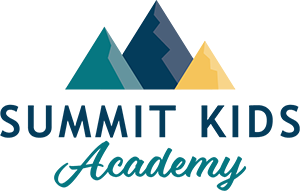Many parents, teachers, and doctors catch signs and symptoms of Attention-Deficit/Hyperactivity Disorder (ADHD) in children once they reach grade school age.According to the Centers for Disease Control (CDC), 1 in 11 children of school age are diagnosed with ADHD. And while diagnosing and treating the disorder before it becomes out of control is important, research now suggests that ADHD is diagnosable in even younger children. Toddlers and preschoolers may show clear signs of ADHD, and early treatment can help curb the behaviors that lead to trouble in school, at home, and socially, as they get older.
You can look out for signs of ADHD in your toddler or preschooler. These may include problematic behaviors such as:
· An inability to engage in an activity which lasts longer than a minute or two.
· Moving on to a new activity after losing interest in the first activity after just a few minutes.
· Talkative or noisy behavior that is clearly more pronounced than other children’s behavior of the same age.
· If asked to hop on one foot, cannot do so (by the age of 4).
· Jiggling and kicking legs, or squirming in chair, and other restless behaviors.
· Regularly encountering dangerous situations due to a lack of fear.
· Aggression toward other children at school, daycare, or in playgroups.
· Injuries that occur when a child is moving too quickly or not paying attention to environment.
If you observe this behavior in your child, or your daycare or preschool teachers report these behaviors to you, talk to your pediatrician. Your doctor may want to discuss the behaviors your child exhibits, what tends to trigger or exacerbate these behaviors, and when you first noticed them occurring. Your doctor will determine whether your child meets the criteria of the Diagnostic and Statistical Manual of Mental Disorders (DSM), published by the American Psychiatric Association, by observing him and speaking with you about his challenges. The DSM includes behaviors related to inattention, hyperactivity, and impulsivity in their criteria for diagnosis.
Fortunately, there are many treatments for ADHD, most of which have been in use for many years and have a safe and effective track record. A combination of different types of treatment is the typical recommendation from doctors specializing in the treatment of ADHD. Your doctor may want to talk about the different medications available to you child. Stimulants, like Ritalin and similar drugs have been used to treat ADHD for decades. More recently, antidepressants such as Wellbutrin, have been used. There are also many natural alternatives to Adderall available. You may want to discuss your child’s history, the various ways in which these drugs work, and their side effects, before making a decision.
Therapy is often suggested as a treatment that complements medication. Cognitive behavioral therapy (CBT) is a method that has ben used to successfully treat ADHD, depression, and anxiety, for years, and has an excellent success record. Your child’s therapist will work with to develop problem-solving and coping skills, time management techniques, and strategies that will help your child to control her behaviors. She may also talk with her doctor about ways of communicating and behaving in social situations, at school or childcare, and at home.
Part of your child’s treatment will be new family strategies, employed at home. Being diagnosed with ADHD can be rough on a young child’s self esteem. Give you child affection, in the forms of verbal endearments and praise, and well as hugs, snuggles, and kisses. And remember to give more positive feedback than negative. Recognize the ways in which your child brings joy to your life, succeeds at tasks, and copes with his challenges. You can also help your child to find activities which appeal to him and boost his self esteem. Maybe this will come in the form of baseball or Tae Kwon Do, or it may be an art or music class that makes your child feel successful and accomplished.
Get organized! Help your child to write down a to-do list that will keep chores and activities organized, and maintain a clean, clutter-free home. Work with your child to keep her space free of distracting clutter, and tidy the house so that this type of chaos and distraction is mitigated. Keeping your child on a regular nap and feeding schedule reinforced the importance of a good routine, and making sure your child is well rested will help to alleviate the severity of his symptoms. When you do need to discipline your child, use calm, simple, direct language, so that he understands what is expected of him.
Remember that your daycare provider or preschool teachers can be a great resource for you. If your toddler or preschooler is diagnosed with ADHD, talk to her childcare providers about her treatment and the strategies you are employing to mitigate her symptoms. Most likely, your child’s caregivers and teachers have worked with children with ADHD in the past, and will be happy to work with you as a team.

